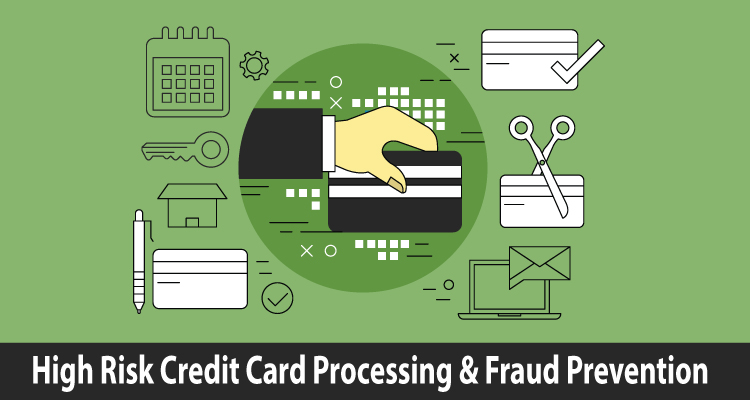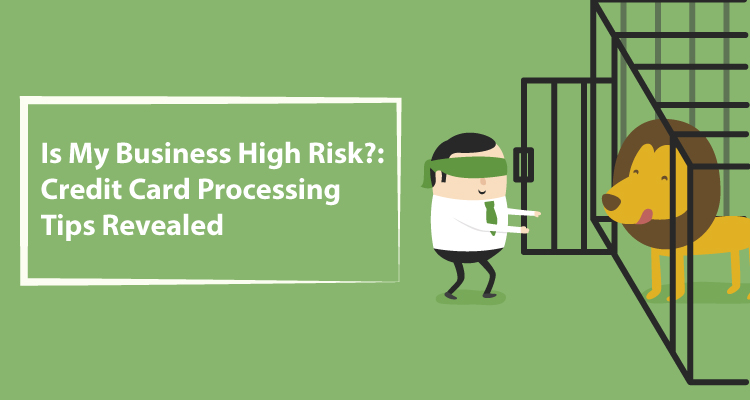It can be difficult for businesses that are considered high risk to find a reputable, secure, and fair high risk merchant. Even if they’re able to find a high risk credit card processor, they’ll be charged higher rates and other undesirable terms. So, what can you do if you’re a high risk business looking for a credit card processor?
Table of Contents
ToggleAn Overview of High Risk Businesses
Before we get too far ahead of ourselves, let’s briefly discuss what exactly high risk businesses are and why credit card processors are hesitant to do business with them.
What is a high risk merchant?
A business is considered high-risk due to a variety of factors, but most commonly it’s based on two main conditions; it operates within a high-risk industry and risk of financial failure exits. For example, if you sell firearms or weapons, then that would fall into the first condition.
Certain industries, such as those involved in the e-cigarette industry, come with a large amount of chargebacks, so that would make it financially risky, as well. For small businesses, they may be considered high risk if they’re processing revenue is less than $1.2 million annually.
To be fair, there are many businesses that aren’t aware that they’re a risk until they’re searching for a credit card merchant account or processor. That’s a problem because they’ll have to pay higher rates and fees for payment processing service.
Why do credit card processors care?
Since credit card processing companies are responsible for all of the transactions that go through your business, they don’t want to work with a business that comes with a lot of baggage, such as chargebacks or fraud. Basically, most processors feel that it’s just not worth the aggravation for them.
How to determine if you’re high-risk.
As mentioned earlier, there are a number of factors that may determine whether or not your business is a high risk. For example, if you’re a new business, have no credit or poor credit, or are involved in less-than-ideal industries, then many processors will consider you high risk.
Examples of high risk businesses include:
- eCommerce
- Anything adult-oriented
- Tobacco
- Gambling
- Financial services
- Legal services
- Travel and hospitality
- Health and wellness
- Software
This is definitely not a comprehensive list, so I would recommend looking at the following list of high risk merchants from Merchant Maverick.

Credit Card Processing Tips for High Risk Merchants
There’s good and bad news for high risk. We’ll start with the good news. If you’re considered high risk, there are still credit card processors that will work with you. The bad news — your terms and contracts may not be as favorable as you would hope.
Either way, here are the best tips to use when searching for high risk credit card processors.
Don’t try to fool credit card processors.
If you think that you can outsmart processors by not fully disclosing the products or services that you sell, think again. They’ll eventually find out that you’re a high risk business by taking steps like doing an audit – which can be frustrating and costly for you.
Be honest with your processor. If they deny you, then keep searching for a processor that will work with you. These types of processor who will accept you are out there.
Have capital resources on-hand.
One of the best ways to secure a payment processing provider is to prove that you’re well-capitalized. This can include resources ranging from tools, equipment, buildings, inventory, and machinery that is used to generate income for your business.
If you have productive assets, banks and underwriters may be willing to provide payment processing services since it’s a sign that your business is well-funded and has the ability to absorb financial losses.
Provide previous processing history.
If you don’t have substantial capital resources, then you’ll need to provide previous processing history to a credit card processing provider. This allows them to see how you’re processed payments in the past. Don’t be concerned if you were dropped by a previous low risk processor.
Remember, it could have been because they felt that your financial service business was too risky for them and not because of chargebacks or fraud. It’s better to prove to your new processor that your account wasn’t terminated because you were doing something illegal or not complying with regulations
Avoid preset limits.
Processors give high risk businesses a preset limit on the amount of transaction that they’ll process. That’s not a big deal for a new business, but what if your business takes-off and you start processing a high amount of transactions. The processor may charge you a penalty fee if you exceed that preset limit. When searching for a processor, look for one that offers an unlimited transaction volume and helps you scale accordingly.
Always be prepared for the worst.
If possible, it’s probably in your best interest to have two active high risk merchant accounts open. The reason? You never know when there will be a new set of underwriting guidelines or an increase of chargebacks that may cause you account to get terminated. This way, if you get dropped from one processor, you still have another merchant account to process credit cards.
Be aware of reserves.
High risk processors set aside a certain amount of money in your account so that they handle any payment issues, such as chargebacks, claims, and debit transactions. PayPal, for instance, requires two-type of reserves;
- A rolling reserve is a reserve where a percentage of transaction(s) you receive each day is held and then released later on a scheduled basis. For example, your reserve could be set at 10 percent and held for a 90-day rolling period – meaning 10 percent of the money you receive on day 1 is held and then released on day 91, and another 10 percent of the money you receive on day 2 is held until day 92, etc. Rolling reserves are the most common type of reserve.
- A minimum reserve is a specific minimum amount of money that you’re required to keep in your reserve balance at all times. The minimum reserve is either taken as an upfront amount deposited all at once or a percentage of money is held until a certain amount has been reached.
For some businesses, having a 5 to 10 percent of your sales withheld could do serious damage, like disrupting your cash flow and not being able to accommodate for that cash flow. Make sure that you’re aware of reserves, along with any other fees, and be certain that you can financially handle them before selecting a processor.
Negotiate every 3 months.
What if you don’t have any previous processing history? Unfortunately, that means that you’re account is considered riskier than others, which means that the terms will be pricey and restrictive. However, you can re-negotiate your rates, reserves, and any other contract terms with your card processor as long as they have 3 months of history to analyze and review.
Even if you applied and were declined by a processor, your application could be approved if you provide them with 3 months of statements.
Make security a priority.
Payment processors that provide secure payment gateways and virtual terminals are non-negotiable. Be certain that each and every transaction made online is protected by encrypted server transactions and adhere to the latest regulations set by the Payment Card Industry Data Security Standards.
Find the best high risk processor.
By finding a payment processor that works specifically with high risk businesses can not only help you build your trustworthiness and reputation, they also provide services that can help reduce instances that involve chargebacks or fraud.
Some of the leading high risk merchant account providers include: Durango Merchant Services, Payline Data, eMerchantBroker, PaymentCloud, and Host Merchant Services.













